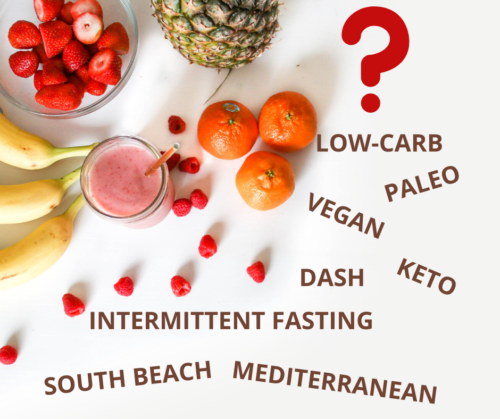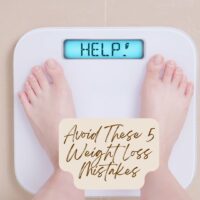How To Choose The Best Eating Regime

Is The Keto Diet For You?
March 18, 2020
10 Simple Tips To Get Fit & Healthy
July 8, 2020What´s The Best Eating Regime For You?
There are thousands of diets around, and the growth of the weight loss market rose to 70.3 billion dollars in 2018. Wow! Everywhere you look, there is some mention of dieting, whether on the TV, in magazine ads, internet ads, etc., but despite these statistics, people are still struggling to lose weight. The weight-loss New Year’s resolutions fall by the wayside by the end of February, and the gyms empty. In the era of the coronavirus, people are becoming more aware of their health, and losing weight and getting fitter are essential elements of a healthy life. So, if weight loss is your goal, let me show you how to choose the best diet plan and provide a few tips in the process.
Please note: This post contains affiliate links. Please see Affiliate Disclaimer for further info.
Before You Start?
Your mindset is critical in achieving success, especially regarding your health journey. I always encourage my clients to prioritize “Health” over embarking on restrictive diets. Diets often lead to feelings of deprivation and restriction, which can be counterproductive to long-term success.
Before diving into a new eating plan, take a moment to assess your mindset. Why are you considering body transformation? Is it for your well-being or because of societal pressures? Are you seeking a body transformation for yourself, or do external expectations influence you? Understanding your motivations and beliefs is crucial before starting any new regimen.
Starting from a place of self-hate or dissatisfaction with your body is not conducive to sustainable change. Instead, embracing a mindset focused on choosing “health” and prioritizing overall well-being will set you up for success. By adopting a positive mindset, you’ll be better equipped to achieve lasting results and maintain a healthier lifestyle. Take time to assess.
Where Do You Start?
Yes, I agree with you; the Diet Jungle is confusing. It has everyone confused! There’s the Low-Carb diet, the Keto diet, the Mediterranean diet, the DASH diet, the Vegetarian, the Paleo Diet, The Sirtfood diet etc. All of these can be very confusing but equally work in different ways for different people. However, when looking for a suitable diet plan, the main question you should ask yourself after deciding to change something is whether you can adhere to the diet to reach your long-term goals. I emphasize ‘long-term’ here because many dieting techniques deliver short-term results.
Choose An Eating Plan That Suits Your Needs.
Choosing the right diet plan is vital because you will give up after a week if you don’t enjoy it. If a diet plan doesn’t fit into your lifestyle or it makes you feel deprived, the chances are that you will give up, resulting in a feeling of failure, of which you then head back to the drawing board. Let’s look at a few examples of different diet plans and lifestyle scenarios.
The Keto Diet

This diet is an effective way to lose weight for some people, but not everyone. One can lose weight on the Keto diet by reducing carbohydrates to approximately 20-50 g per day by placing the body in ketosis, which turns the body into a fat-burning furnace. The Keto diet is quite a manageable regime for me to follow because I eat minimal starchy carbs and rarely sugary foods. However, this eating regime will be more challenging for someone who likes eating a lot of bread, pasta, rice, potato, etc., as these foods are taboo on this diet. This person will feel the cravings much more (and the Keto-Flu) than someone who eats a low-carb-based diet, making it more challenging and much easier to give up.
Intermittent Fasting
Intermittent Fasting is an effective method as it’s not a diet; it’s a pattern of eating. I do this five days a week and have two days off on weekends. When Intermittent Fasting, one goes without food (FAST) for a certain amount of time, usually between 12 and 16 hours, and then the feeding time has a 4, 6 or 8-hour time window.
Benefits of Intermittent Fasting
Intermittent fasting has some great benefits, not just for weight loss because there are many health benefits that it provides, and the weight loss does follow, so this plan may not be for somebody who likes to eat maybe four or five small meals per day or is used to eating four or five meals per day. So, if you’re a person who likes to have breakfast before you go out the door, then intermittent fasting might be challenging because you fast at night. Your first meal is between 10 and midday, so this eating regime, although it’s effective, might just not fit into your daily plan. It depends on how your daily structure is planned and how your work is structured. Some people are quite happy not to think about breakfast and start their first meal at midday.
Get Your Free eBook:
You can see more about Intermittent Fasting in my FREE EBOOK – Get Healthy-Get Lean with Intermittent Fasting.
The Mediterranean Diet
The Mediterranean diet emphasizes fruits, veggies, fish, olive oil and other healthy foods. I’m a huge fan of this diet and low-carb diet because it has fewer restrictions and doesn’t make one feel deprived. It has a majority of wholesome foods that are high in water and fibre. This diet helps to keep one full and reduce any crazy cravings. I eat a lot of fish and olive oil, so I incorporate this pattern into my intermittent fasting plan. However, many people don’t have the time to cook veggies and fish for lunch, which can also be costly. If you are a busy person who travels a lot, this may be challenging, too.
What Is The Best Eating Regime For You?
The best diet to lose weight LONG-TERM is one that you can enjoy and sustain. That’s the bottom line. It’s all about sustainability. Additionally, having the right mindset is the first step, as one needs to make a firm decision about starting and following goals. Making a firm decision is the first step to body transformation; finding the right plan FOR YOU is equally important. Along with changing your lifestyle habits, assessing your other habits, such as sleep, exercise, and stress, is vital. Losing weight is not just about the food we eat; it also covers many other lifestyle aspects. Nutritional completeness is crucial, as well. Our body needs essential nutrients to function.
Be Realistic And Don´t Give Up
Choose a sensible diet regime so that you can start to see immediate (realistic) results. Many people give up on their diets because they are unwilling to wait a few months to see the results. Losing 10kg in one week is neither realistic nor safe. Choose your diet plan carefully and strategically, which may help you stay on track to reaching your goals. The body needs 21 days to form a new habit, so stick with ANY diet programme for 21 days no matter what. The first week is always the hardest!
Let´s Recap:
- Assess your mindset. It´s vital to know why you are considering a new eating regime. Assess your why before you start.
- Choose a diet regime that you feel comfortable with.
- Make sure it´s a safe, effective and flexible plan.
- Choose a diet that you can sustain.
- Do your research. The Internet has vast information about every diet on the planet and its success rates.
- Decide what you can and cannot live without, e.g. are you willing to give up bread and pasta?
- Write your goals down and give yourself timelines.
- Avoid crash-dieting.
- Be aware that your body needs 21 days to form a new habit. Diets are long-haul!
- You are unique – what works for someone else may not work for you.
- Be prepared to change other aspects of your lifestyle, not just your eating habits.
Check out my YouTube Video on tips for choosing the best diet.

By loading the video, you agree to YouTube's privacy policy.
Learn more
Follow me on Facebook & Subscribe on YouTube
COVER IMAGE: Background Image from Canva – Assorted Fruits on White Canvas – Free Download – Royalty Free use. Re-designed with diet names- by Jo Mac
DISCLAIMER – PLEASE READ FULL DISCLAIMER
The information in this blog is for educational purposes only. It is not meant to replace any advice a medical practitioner or nutritional therapist gives. You must consult your doctor before embarking on any diet or nutritional/exercise program detailed on this website, especially if you are pregnant, nursing, taking medication, or have a medical condition. Your doctor knows what is right for you.
The eating regime mentioned above does not serve as a cure or prevention for any illness, disease, or medical problem. It is also not recommended for people under the age of 18.
If you engage in any of the information provided on this website (and mobile version), you do so solely at your own risk. You agree that you voluntarily participate in these activities and assume all risk of injury to yourself.
When you buy through links on this website, I will earn a commission or an affiliate commission. See affiliate disclaimer





2 Comments
J’ai lu votre article avec intérêt. Shayna Thebault Georglana
I like the valuable information you provide in your articles.
I’ll bookmark your weblog and check again here
frequently. I am quite certain I’ll learn a lot of new stuff right here!
Good luck for the next!